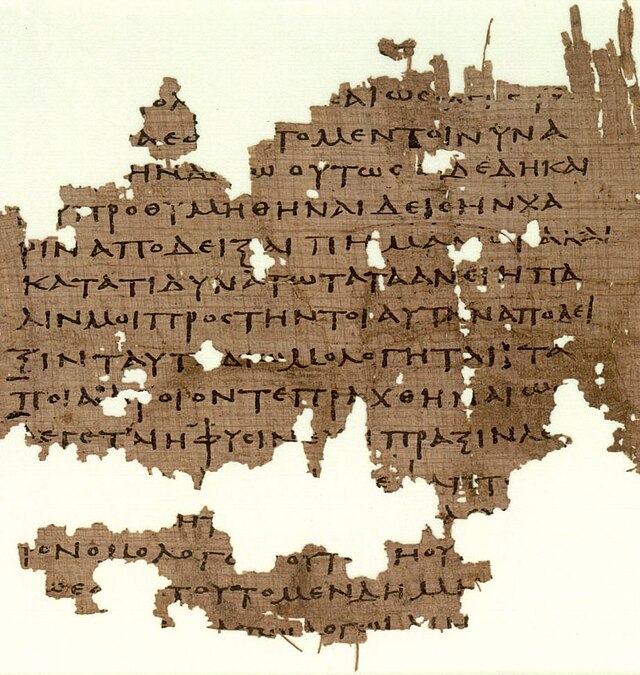Noble lie
Untruth propagated to strengthen social harmony From Wikipedia, the free encyclopedia
In social sciences and social philosophy, the concept of a noble lie is a myth or a lie in a society that either emerges on its own or is propagated by an elite in order to maintain social order or for the "greater good", descriptions of it date back as early as ancient Greece in Plato's The Republic.[1]

Plato presented the noble lie (γενναῖον ψεῦδος, gennaion pseudos)[2] in the fictional tale known as the myth or parable of the metals in Book III. In it, Socrates provides the origin of the three social classes who compose the republic proposed by Plato. Socrates proposes and claims that if the people believed "this myth...[it] would have a good effect, making them more inclined to care for the state and one another."[3]
Criticism of Plato's noble lie
The concept of the noble lie as defined by Plato has sparked controversy among modern interpreters. Although some earlier classical scholars including Francis Cornford argued that "noble lie" was a mistranslation, Allan Bloom argued for a literal translation and interpretation of Plato's expression.[4]
In The Open Society and Its Enemies, Karl Popper remarks, "It is hard to understand why those of Plato's commentators who praise him for fighting against the subversive conventionalism of the Sophists, and for establishing a spiritual naturalism ultimately based on religion, fail to censure him for making a convention, or rather an invention, the ultimate basis of religion." Religion for Plato is a noble lie, at least if we assume that Plato meant all of this sincerely, not cynically. Popper finds Plato's conception of religion to have been very influential in subsequent thought.[5]
See also
- Big lie – Propaganda technique
- Bokononism
- Lie-to-children
- Morality play
- Paternalistic deception
- Pious fiction
- Plato's Laws
- Shendao teachings
- White lie
References
Wikiwand - on
Seamless Wikipedia browsing. On steroids.
